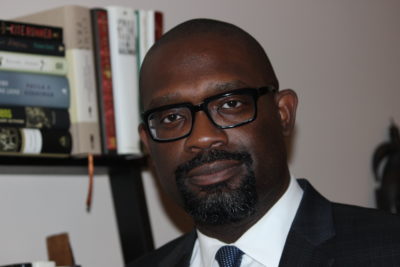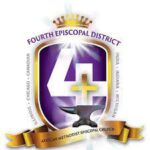By Rev. William Lamar IV, Columnist
Preachers do not step into the pulpit just because another Sunday morning has rolled around. We don’t preach just for the sake of preaching. For some of us, especially black pastors in the United States, preaching is an opportunity every week to invite human beings to participate in the in-breaking reign of God.
The idea that such in-breaking is even possible is not a feel-good, idealistic notion. It is the ground upon which black preachers have built and sustained their abiding belief that God’s justice, freedom, and peace can exist on earth. As a result of this commitment—some might call it idealism—balck preachers have long worked to repair the dilapidated structures at the intersection of American theology and politics.
In the wake of the recent presidential election, the deterioration and decay at that intersection is more visible than ever. What now is the role of black preaching in this new age, in this new America of soon-to-be President Donald Trump?
For generations, black pastors from the Rev. Dr. Martin Luther King Jr. to the Rev. Dr. Jeremiah Wright have warned that America’s house is on fire with injustice and oppression. Do we follow King’s call and be America’s firefighters, helping extinguish the fire and save the house? Or, given the election results, is it time to abandon the house—both America and its Christianity—and condemn it as unsalvageable?
Most black pastors and their congregations live with these tensions in one way or another. They know that Christianity—even American Christianity—is neither inherently white nor incompatible with black life in America. However, as they work to see and bring about the in-breaking reign of God, many—if not most—fall somewhere in the middle. They are not willing to live in a house aflame with oppression and injustice but neither are they willing to abandon the American project and the Christianity that underwrites it.
How fertile is that middle ground? Is it even safe? In the current context of Christianity in America, how can one possibly preach in such a way that a congregation can not only envision the reign of God but also find it irresistible? Can the preached word really help dismantle and ultimately defeat the powers arrayed against that reign? How can pastors even talk of political and theological freedom in a time of such racial strife and tension?
For some insight, we would do well to consider the theology of Richard Allen, the founder of the African Methodist Episcopal Church. For Allen, who lived for years in slavery before buying his own freedom, Christian conversion was not an end in itself. After becoming a Christian, he studied theology and began thinking and reflecting theologically, eventually asking himself, “What does being Christian and my understanding of that theology mean for the condition of my body and the bodies of my fellows?”
As he pondered that question, I believe Allen worked in the best tradition of Trinitarian theology. God, he realized, is radically free and sovereign within God’s Triune life. The Father does not control or subvert the Son. The Son does not control or subvert the Spirit. The Triune God exists in self-disclosing, other-affirming love. If all that is so, then human communities are to model the life of God. They are not to be controlled or subverted by other human communities. People must be free to live in community with one another even as God lives in community with Godself—absent coercion, control, and subversion.
Allen’s theological reflection led him to preach and act squarely within the American narrative, while at the same time pushing that racialized narrative to something new, something that could not be called “American” at all. In his preaching and advocacy, he promoted something both unlawful and unimaginable to the powers that ruled America: that Africans in America, both enslaved and free, were not mere observers or bystanders but “citizens” with the power to make things happen in the land where they found themselves.
Allen clearly used American language and symbolism in his preaching and public rhetoric. He also, however, used African-American language and symbolism to demand liberation for his fellows and insist on the reign of God in this life, not another. Working with God as co-creator, he moved beyond speech to acts and beyond rhetoric to building.
(Part 2 of this essay will appear in the next issue. This article originally appeared in Faith and Leadership https://www.faithandleadership.com/william-h-lamar-iv-black-preaching-after-election.)
The Reverend William Lamar IV is the pastor of Metropolitan AME Church in Washington, DC. He has previously served at churches in Maryland and Florida. He is a former managing director at Leadership Education at Duke Divinity. Lamar is a graduate of Florida Agricultural and Mechanical University and Duke Divinity School.




